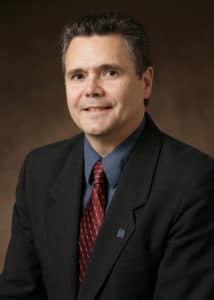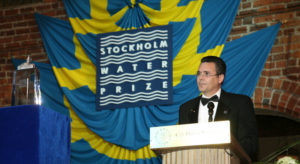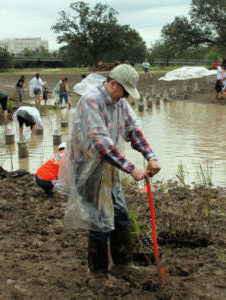
James H. Clark, Water Environment Federation (WEF; Alexandria, Va.) president 2001–2002, is a 2017 WEF Fellow. Photo courtesy of Clark.
James H. Clark, Water Environment Federation (WEF; Alexandria, Va.) president 2001–2002, is a 2017 WEF Fellow. Photo courtesy of Clark.
At WEFTEC® 2017, the Water Environment Federation (WEF; Alexandria, Va.) named James H. Clark, WEF past president, to its latest class of WEF Fellows program honorees. This program celebrates the outstanding contributions WEF members have made to the water and wastewater sectors.
Clark, who currently is a Los Angeles-based senior vice president for Black & Veatch (Overland Park, Kan.), boasts a long and productive relationship with WEF. He served as WEF president from 2001 to 2002, and received WEF’s Emerson Distinguished Service Medal in 2004, Englebrecht International Achievement Award in 2009, and Honorary Membership in 2012. Each of these distinctions is presented to an elite, select group of individuals. Read more about Clark’s receipt of Honorary Membership in the WEF Highlights article, “WEF Past President Receives Honorary Member Status.”

Clark presents the 2007 Stockholm Water Prize during an awards ceremony at Stockholm City Hall. Photo courtesy of Cecilia Österberg, Exray.
Clark joined WEF in 1976 and has been an active member ever since. He has written and reviewed several of WEF’s technical publications, which have become sources for the sector’s best-practice standards.
“The advice I would give to the next generation of water professionals is to make sure that you stay involved and active in professional organizations as well as the technical side. We need to have people who are very sharp and are learning throughout their career,” Clark said. WEF offers valuable opportunities for continued involvement and learning, he said.
As an environmental engineer, the Vancouver, Wash.-native played a key role in developing the City of Los Angeles’ Hyperion Treatment Plant. Clark also was instrumental during design, planning, and construction of the Seymour-Capilano water filtration plant, a potable water, ultraviolet disinfection facility capable of processing up to 1.8 billion L (475 mgd) of water each day in Vancouver, Canada.

Clark volunteers at the WEFTEC 2012 service project to build a bioswale in New Orleans. Photo courtesy of Haley Falconer, Water Environment Federation (Alexandria, Va.) member.
The WEF Fellows designation also recognizes Clark’s efforts away from the design board and the meeting room. He has become an authority on water infrastructure issues at home and abroad.
After Hurricane Katrina damaged many of the Gulf Coast’s water and wastewater facilities in 2005, Clark spearheaded a WEF effort to assess reconstruction costs and identify possible sources of relief funding. He presented findings, which were published in a report, to the U.S. Congress and members of the media in a press conference on Capitol Hill. He also spoke about water infrastructure in Stockholm during World Water Week in 2006. In 2007, Clark represented the U.S. at the Japan–U.S. Governmental Conference on Drinking Water Quality Management and Wastewater Control.
Clark credits WEF and the other professional organizations in which he is involved, such as the American Society of Civil Engineers (Reston, Va.), the American Water Works Association (Denver), and the International Water Academy (Oslo, Norway), with providing a “fantastic home” for him and other water professionals to share ideas and gain new perspectives.
“It’s a broad range of people who are here: from the equipment suppliers to the designers to the professors, and utility professionals, and regulators,” he said. “It’s just an incredible opportunity to be able to have friends in the industry that you know and can work with and can call on when you have questions or need assistance.”